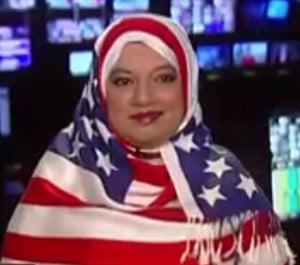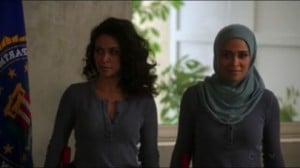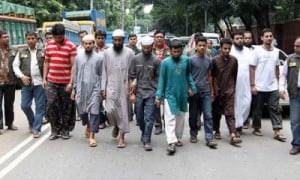For most of us, Ramadan has always been linked to achieving spiritual goals, or spending some time with the family for Iftar or Suhoor. One very special memory that the first day of Ramadan holds for me is beginning to wear hijab, three years ago.
I had been thinking of putting it on since I was in college, which is around seven years ago, and I had read and watched people talking about this issue. One interesting show was running on Al Jazeera documentary channel in 2003 (as I remember), and a religious scholar on the show was talking about how the Muslim Arab community has more and more “hijabi girls,” as he called them. He talked about hijab as a form of protection and respect.
I was not convinced 100% by what was being said, but it got stuck in my head, and I had thought about it a number of times. I also can’t ignore the fact that the atmosphere I was surrounded by at that time, among my in-laws, had a great influence, since all the ladies wore hijab. To be honest, their style of wearing hijab was very beautiful, since they mixed different colors, with different designs of clothes, and that made it more appealing to wear. This is not a surrounding I was used to before getting married. It was totally new. But I was happy with the change as it was something new to experience,. I got a lot of positive feedback from people, some of them I don’t even know, and that made me feel confident about my decision.
Today after three years, Ramadan still reminds me of that step, a decision that my mom called a very brave one, but as I go on with life, I keep on searching for the real reason behind my decision to wear hijab. When I fail to do so, I get the feeling that I might have made a wrong decision, and that I should go ahead and take it off, since I can’t pin down any one reason for wearing it.
At one event I attended one year ago, one guy told me: “I am so sorry to tell you this, but I did not expect somebody wearing hijab to be a journalist working for a big company here in the Middle East.” So that was one problem people carried around when dealing with Muslim women wearing hijab: they have stereotypes about how to deal with them. This was not limited to stereotypes held by foreigners, but also to people who lived for years in the region. For example, they think that if a woman wears hijab then she thinks in a very traditional way.
I think the way that Muslim women are portrayed in Arabic drama is one of the reasons this is happening. To date, there is not one example of a strong Muslim women wearing hijab that sets an example in Arabic drama. Muslim women with headscarves are usually portrayed as weak human beings, who need support and protection; see, for example, an Arabic soap opera I wrote about at the end of last year.
On the other hand, taking hijab off was not an option for me. I did not want to be judged as not brave enough to stick with my decision. In addition to that, there was the social pressure, wondering what people would say if I take it off, and worrying about my image in front of people was one big problem for me.
As a result of all these thoughts, I thought to myself: “I should be thinking of reasons that make hijab an appealing idea for me, instead of thinking in the other direction.” So, I keep on reminding myself that I am no different than any other woman who works and thinks in a liberal way. My way of thinking and judging things is still the same, and has not changed with putting on a headscarf. I even started thinking more positively; by doing this, I try to present a very positive image of hijab-wearing Muslim women who are able to achieve their dreams and great things in life (unlike what we see on television).
A little part on me still thinks about taking off hijab, but the other part is used to the idea now, and I seem less hesitant to put it on. In fact, I have asked myself a very important question: “Is this headscarf preventing me from doing anything in life?” The answer is usually “NO,” which makes me feel better about the original decision to put it on. On a religious level, hijab made me closer to my duties towards God. It reminds me of performing daily prayers on time. It created a sense of belonging to a Muslim culture that works very hard on achieving its objective in terms of social and personal excellence. And that what makes Ramadan a very special month for me.
For more on Ramadan, and to read the rest of the posts in MMW’s Ramadan 2012 series, click here.












